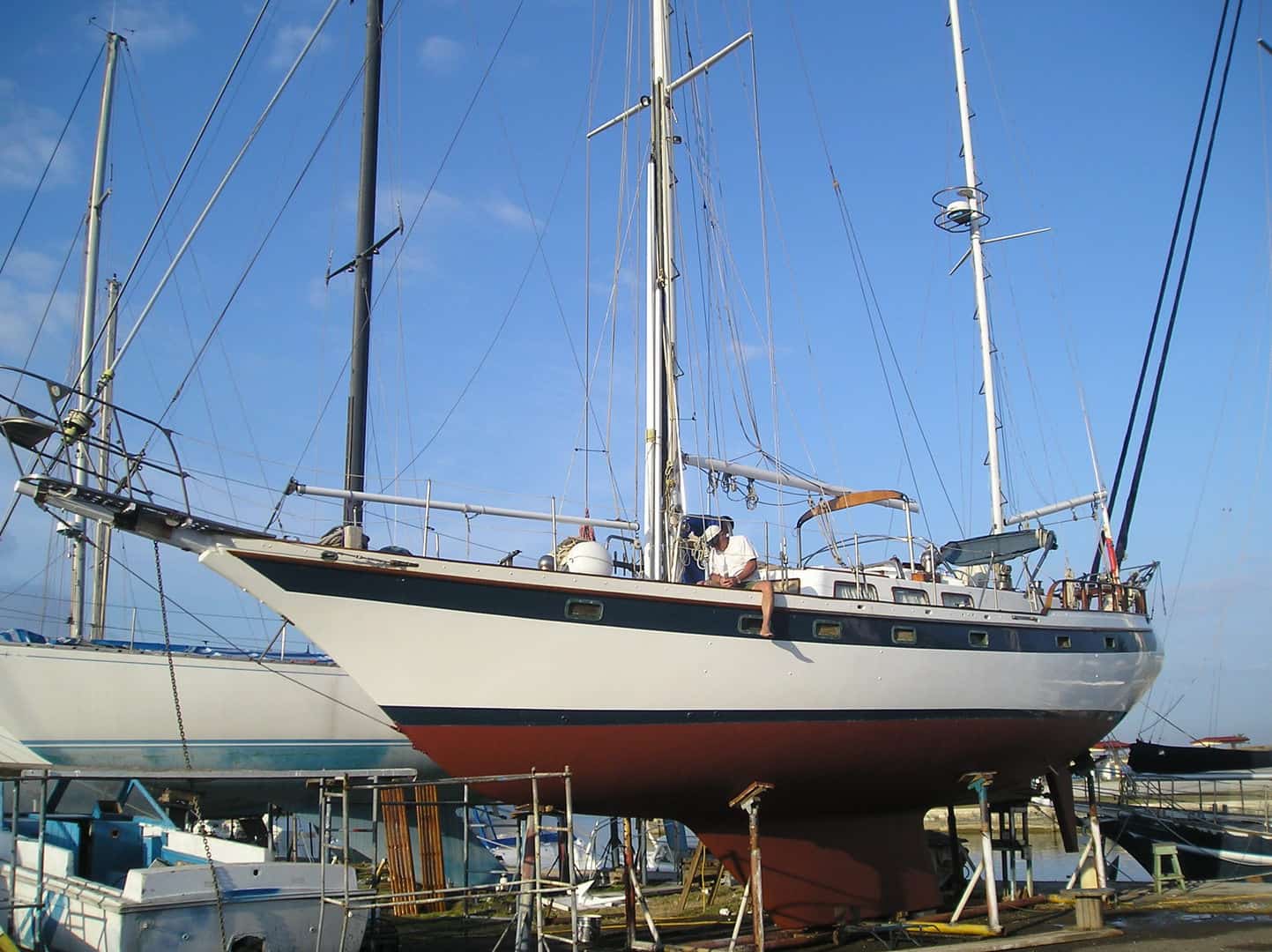Good morning to Captain and crew alike and welcome to the Admiralty Docket. Today our subject is property tax assessments on vessels in South Carolina.

Time provisions do not run while a vessel is in a boatyard undergoing repairs
Recently, we have received several inquiries from vessel owners who are not residents of South Carolina but who have received property tax bills from the South Carolina Assessor’s office for considerable sums of money. These individuals have been universally shocked by both the fact that South Carolina has the legal authority to tax transient property belonging to a non-resident and the amount of the tax bill. Below is a brief summary of the code provisions as well as some useful links.
S.C. Code section 12-37-714 provides, in pertinent part, that transient non-commercial personal property, including boats and motors, owned by non-residents acquires a tax situs within the state when it is within the state for sixty consecutive days or ninety days in the aggregate within a tax year. There is an option for counties within the state to increase the number of aggregate days to 180 days within the tax year, which all coastal counties within the state have done by county ordinance.
For vessels used in interstate commerce which are within South Carolina for at least 30 days, the state is required to pro-rate the tax bill based on the number of days within the jurisdiction. If your vessel is a charter vessel or you can otherwise show that it is not exclusively used recreationally, then you may be able to qualify for a pro-rated bill.
There is also a time-tolling provision within the statute which provides that the time does not run for a vessel undergoing repairs in a boatyard if the owner can also provide a written contract for the repairs.
The default assessment ratio in South Carolina is 10.5% with no cap. This can lead to some very high tax bills. For the last few years, the highest tax bill paid in South Carolina has been in the hundreds of thousands of dollars. Granted, this has been on a very expensive yacht, but the tax amount is still rather staggering. In most counties, the assessment ratio can be lowered to 4% or 6% if the owner;s vessel qualifies for and the owner applies for a primary residence or secondary residence exception. See S.C. Code 12-37-224, et. seq. Some counties have lowered the default assessment ratio to 6% for all boats within the county.
Jeff Boger and Suzi DuRant have prepared on behalf of the South Carolina Marine Association a helpful
Summary of Code Provisions and ordinances applicable to this topic which I have run across several times during my research on this topic. There is also a lot of useful information in this SC Department of Revenue publication on personal property tax. The entire 2012 Property tax bulletin can be found here.
If you have questions regarding your rights and responsibilities with respect to a property tax bill for your vessel, please feel free to call or email our office for a free consultation.
More next week on the Admiralty Docket. Until then remember that your rights and responsibilities may change as you approach the shore, and may God Almighty grant you pleasant sailing.

